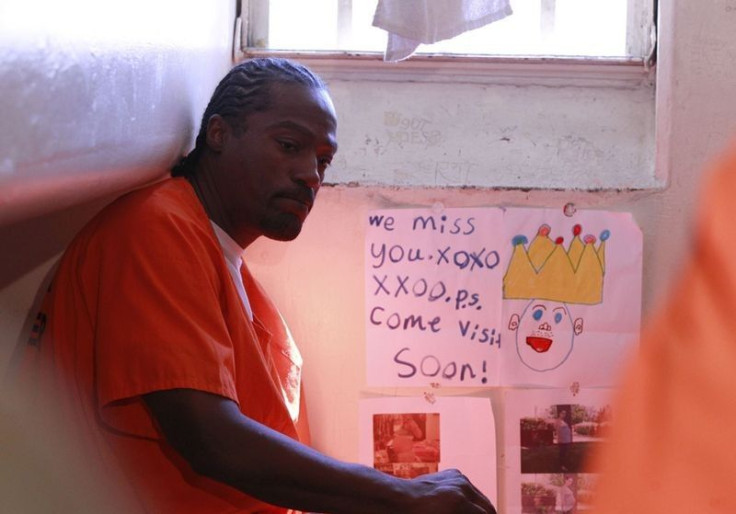Ron Paul 2012: Why He Deserves Black America’s Vote
Opinion

Forget those decade-old racist newsletters that he did not write or even read. Black (and Hispanic) America needs to support Ron Paul's 2012 campaign.
First, nothing in his political campaigns -- in 1996, 2008, and 2012 -- had any hints of racism. Second, numerous people, who have known him for years, including those in the black community, have testified that he is not a racist. The most important reason Paul deserves Black America's vote, however, is that he wants to end the modern-day Jim Crow laws.
Enacted shortly after the Civil War, and lasting until the Civil Rights movement in the 1960s, the original Jim Crow laws relegated blacks to inferior educational, bottom-rung job opportunities and constricted their rights to vote, while also barring them from using white public facilities.
By 1965, the federal government had largely outlawed the original Jim Crow laws. Starting in the 1970s, however, a new form of the original laws -- the War on Drugs -- began to take shape and set into motion. This war, which increasingly criminalized drug offenses and stepped up law enforcement, disproportionately targeted blacks and Hispanics. Racial profiling, in short.
Paul, in own words, said years ago: Blacks make up 14 percent of those who use drugs, yet 36 percent of those arrested [for drug offenses] are blacks.
Black and white drug use rates are fairly similar, while Hispanics use drugs much less than whites, but both Blacks and Hispanics are much more likely to be imprisoned on drug charges than non-Hispanic whites, said a study from the University of Wisconsin-Madison.
A widely-circulated New York Times article detailed how New York police officers frequently targeted black men minding their own business, often to question them about drugs. According to the article, the New York Police Department made about 600,000 stops in 2010 -- 84 percent of those stops were against black and Hispanic individuals.
Still to the point, the overall incarceration rate and the percentage of black incarceration surged starting in the 1970s. This is no coincidence. Critics may argue that it is simply because blacks commit a disproportionate amount of drug crimes. But this is a chicken and the egg question. That is, blacks are likely convicted as drug criminals (partly) because they are racially targeted as suspects more often.
This, and the high incarceration rate of blacks, has had a big impact on Black America. Most obviously, many black people are kept in prison for a period of time, which takes away their right to vote (disenfranchisement) and severely limits their educational and job opportunities.
Perhaps more important, drug criminal offenses stay on one's record and follow a person out of prison. Anyone who has filled out job or school applications knows that institutions can ask for one's criminal history. Based on that information, they can practice discrimination.
In name, this is discrimination against criminals (perhaps justified for violent criminals). In practice, it is discrimination against blacks and Hispanics who are racially targeted for drug offenses. By doing so, the War on Drugs has created a marginalized underclass in the America, mostly consisting of blacks and Hispanics, who are denied equal access to job and educational opportunities.
Sounds a lot like how the old Jim Crow laws worked.
The impact of the new Jim Crow laws is huge. The November 2011 unemployment rate for blacks is 15.5 percent versus 7.3 percent for whites (and this does not even factor in the disproportionate number of blacks who are incarcerated and thus not employed). Eighteen percent of black families make less than $15,000 per year, compared to just 7.2 percent of white families.
This economic marginalization, in turn, makes it more likely for blacks to turn (or return) to a life of crime. All of this acts to weaken Black America by destroying black families. Consider the following shocking statistics: 67 percent of black children are in single-parent families (compared to only 24 percent for white children).
Ron Paul is acutely aware of the new Jim Crow laws that is called the War on Drugs in name.
Inner city minorities are punished unfairly in the 'War on Drugs,' Paul said, adding that black and whites do not have equal justice under the drug laws. He, therefore, supports repealing most of the federal law on drugs. He is also opposed to the federal death penalty because it unfairly targets inner city minorities and gives a pass to the rich. As president, he said he would support the pardoning of non-violent drug offenders of all races.
These are the real issues facing Black America. However, the establishment, threatened by a candidate like Ron Paul, would rather distract black and Hispanic voters with some newsletters written decades ago that were clearly not authored by him.
© Copyright IBTimes 2025. All rights reserved.





















